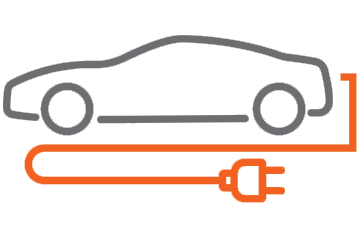INSURING THE FUTURE
Insurance can be a vital line of defence for businesses and people against the consequences of environmental disaster. But it can also be a barrier to innovation. At Plan we want to support the inspired, pioneers who will turn the risk of climate change into opportunity
Waste & Recycling
We will tailor cover to your company’s precise needs.
Green Energy
Whether its entire microgrids harnessing renewable power or simpler charge point installations we’re keen to assist.
Electric Vehicles
We’re right behind the charge towards commercial electric vehicles and can provide insurance solutions.
Last Mile Deliveries
Sustainable “last mile” urban deliveries are increasing in importance and we have extensive market knowledge.
Green Consultancies
Professional indemnity for the expert eco consultants who are providing vital advice that will aid the world’s climate change efforts.
Urban Transport Solutions
Micro urban transport hubs are proving ever more practical. We have facilitated numerous schemes.
WHO WE COVER
- Waste & recycling firms
- Green consultancies
- Wind and solar farms
- Micro-grid installers
- Charge point installers
- Electric vehicle manufacturers & fleets
- Alternatively fuelled vehicle fleets
- Last mile delivery firms
- Scooter hire schemes
- Bike hire schemes
COVER WE OFFER
PLAN’S GUIDE TO INSURANCE FOR FIRMS IN THE SUSTAINABILITY & RENEWABLES INDUSTRY
Insurance is a contributory service rather than a direct initiator in the battle against climate change. However the industry can still play an important role. Plan aims to aide businesses in the sustainability and renewable industry by arranging suitable cover to meet their needs as well as investing time and effort in the development of new insurance solutions when required.
Below we have compiled some relevant information and commonly asked questions regarding insurance for companies working in sustainability and renewable energy.
If you have any more questions or would like a quote call our expert team, request a call back or fill in a quote form.
Climate change undoubtedly presents the world with its biggest challenge. The insurance industry has a vested interest in delivering a sustainable future. Insured losses are at record highs due to major weather events that experts link to climate change. All industries stand to lose if swift, effective action is not taken. The collective value of damages resulting from a further 2°C of warming are projected to cost the world’s economy $64 trillion by 2100. It’s believed that if global warming reaches beyond 3°C many parts of the world may become largely uninsurable and potentially uninhabitable.
Insurance can play an important role in the drive towards environmental sustainability. It can do so by helping to facilitate the introduction of new technologies and processes.
A report by the United Nations Environment Programme (UNEP) in (2017) highlighted affordability of insurance as being one of the three major challenges to greater sustainability. We want to play our part in the introduction and adaptation of new methodologies, that are aimed at averting the potential consequences of further climate change. Plan can assist these developments by positively encouraging an open minded approach to underwriting. Our lobbying and advisory energies can influence the behaviour and decision making of key individuals in the insurance supply chain.
Various barriers hinder the development of insurance products suited to the needs of green innovations. The high degree of uncertainty in relation to the extent of exposure they present is at the heart of potential objections. It is our job as brokers to overcome these doubts. We can start by highlighting to insurers that sustainability risks are already affecting their profitability. Inaction and lack of adoption are just as much a threat. Climate change has a strong potential to affect all types of businesses and risk classes.
Green technology opportunities often suffer from the lack of risk data and underwriting knowledge that exists in these emerging areas. We have seen this in the insurance industry’s often reticent approach to electric vehicle technology. The absence of pre-existing claims performance data upon which modelling could be based has impeded firms willingness to accept such risks and/or their offering of real world pricing that was sufficiently affordable to allow adoption on a mass scale. At Plan we are proud to have worked with insurers to build data sets and acquire the knowledge that has alleviated underwriters fears in order to bring them to the market. We have played a part, all be it a small one, in expediting the adoption of EV technology in the insurance industry.
We will also consult with sustainability entrepreneurs to build their approach to risk management. This is a significant area that can be overlooked when developing new technologies and products. Proving to insurance underwriters that the mitigation of risk has been given due consideration can play a crucial role in securing terms from their capacity.
CSR is multidimensional and our overall policy has many facets. The United Nations, states that “CSR refers to a company’s responsibility for its impact on society. This includes social, environmental and economic aspects.” CSR “Involves fair business practices, staff-oriented human resource management, economical use of natural resources, protection of the climate and environment, sincere commitment to the local community and also responsibility along the global supply chain.
In regards to climate change we aim to contribute to the world’s and in particular the UK’s sustainable development goals. We will do so by deploying our expertise and resources into aiding the provision of insurance for green technologies for any companies that require our assistance. This will help achieve a better and more sustainable future for all. The Plan Group’s full CSR policy can be found here.
The Principles for Sustainable Insurance form part of an initiative by the United Nations Environment Programme. The stated intentions of the sustainable insurance principles are to, “Reduce risk, develop innovative solutions, improve business performance, and contribute to environmental, social and economic sustainability.” These goals are firmly aligned with Plan’s aspirations as an organisation as well as its holding company The Plan Group Ltd.
As well as the prospect of working with emerging green technologies, many established firms may also present insurers with business opportunities in the sustainability arena. Many companies are very vulnerable to the transition towards a low-carbon economy, even more so than the consequences of future climate change itself. As a result they are already pivoting their business models. For example large players in the oil and gas sectors are investing heavily in renewable energy sources. Their significant financial outlay in new infrastructure projects will create demand for insurance at every step along the supply chain. In the main, these opportunities will stem from smaller businesses that require insurance products that are already available in the market. However in some instances more innovative solutions will need to be developed and Plan will be very happy to assist in the process.
The insurance industry needs to play its part in addressing the risks presented by climate change. Global impact modelling highlights physical risks presented by climate change, these involve increased frequency of extreme weather patterns such as: drought, heat waves, uncontrolled fires as well as coastal and inland flooding due to sea levels rising. The detrimental impact of these “super catastrophes” on major insurers’ loss ratios is already being felt. So, helping to facilitate innovation in those industries that are attempting to mitigate carbon emissions is not only morally responsible but it is financially prudent for the insurance industry.
A major challenge for the transition towards a low-carbon economy is the risk-return uncertainty that green technologies present to insurance markets. The lack of data availability prohibits informed underwriting. Historical data is either unsuitable or insufficient to allow the calibration of risk models. Plan may be able to assist with the sourcing of data that can establish initial risk profiles. If these cannot be found, alternative approaches can be created to support business cases that will aide your company’s pursuit of insurance terms.
The opportunity to create a more sustainable world is time limited. Many great challenges exist and will need to be tackled in the coming years. However there are positive innovations and developments taking place. The so called “Decade of Action” is witnessing many improvements and a new willingness to face the issues.
This is not before time. Climate change is making insurability in many geographical locations and risk types a more challenging issue. Therefore, we also wish to support businesses that are developing loss reduction methods. The underwriting of green product innovations is supplemented by climate change risk management services. Various risk reducing and prevention strategies are endorsed. Examples include the adaption of more resilient building architecture that incorporates flood and other hazard defences.
Green Consultation
Companies are establishing ambitious goals within their own operations as well as their supply chains. Focus and investment is being directed towards, amongst other areas: clean renewable energy, green transportation, sustainable manufacturing solutions and methodologies for reducing greenhouse gases as well as carbon and water footprints. The collective effort of corporations focusing on carbon reduction, indirect emissions in their supply chain, setting science-led targets for supply chain partners and collaborating on renewable energy procurement and research programmes to move away from carbon-intensive procedures, will hopefully have a profound impact on the world’s climate change goals.
“Circular economy programs” aim to stop badly designed items and environmentally damaging products from being outputted. This will be a key way of safeguarding the environment. Within this drive there will be great demand for and benefit gained from seeking external expert input. We expect to see a thriving green consultancy sector. Qualified professionals can advise on topics such as dematerialization and eco-design techniques. This will accelerate the reduction in chemical usage, lessening of packaging, optimising inbound and outbound freight requirements and improving the end of life utilisation of would be waste matter.
Water Efficiency
It’s also predicted that the world will see a 40% reduction in its water supply by the end of the current decade. Its highly likely that companies developing water efficiency technologies will emerge greatly in the coming years.
Green micro–grids
We live in an era of rapid technological innovation. These developments present new opportunities and the potential to significantly enhance the energy and sustainability industry. The perception that sustainable energy generation will need to be driven at a large industrial level is changing. The practical appeal and in turn the popularity of physical green technologies is gathering pace. Wind turbines, photovoltaics, power storage units and micro-grids as well as other distributed energy resources (DERs) are now more affordable options for companies and consumers alike. They can also provide access to ever more secure and reliable power supplies.
Green micro-grids are gaining in popularity for multiple reasons. These technologies continue to rapidly improve in terms of their capabilities whilst costs reduce. The appeal, to sustainable focused decision makers, of a solution that offers a resilient power supply with backup battery storage, all from renewable energy sources is great. As users are able to more easily fulfil their sustainability goals, the potential to disrupt the business models of traditional energy companies also grows substantially.
Improving functionality and costs that are at near parity with traditional grid suppliers offerings are making micro-grid projects ever more popular. The ability to implement long term cost savings coupled with reduced carbon footprints mean that microgrid infrastructure is no longer a niche solution. They are now proving popular in diverse commercial sectors.
Artificial Intelligence
Loosely labelled under the banner of artificial intelligence, the application of connected monitoring sensors, block-chain and big data are also aiding climate change efforts. Improvements in prompt decision making and subsequent actions of firms is helping to reduce their impact on the environment. For example, time, money and valuable natural resources can be saved via the immediate remote disablement of malfunctioning equipment that is picked up by connected systems.
Recycling and Product Life Extension
Initiatives mainly focus on plastics and packaging reduction as well as recycling and upcycling. As public concern elevates regarding the plastic levels in our water supplies and oceans, it propels the world to take action and the scope of this sector will grow.







